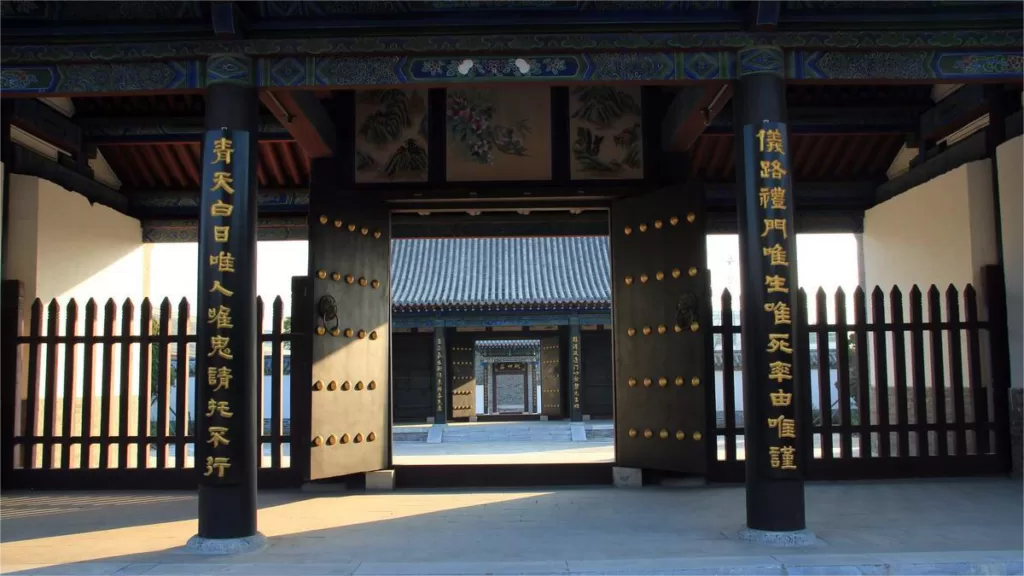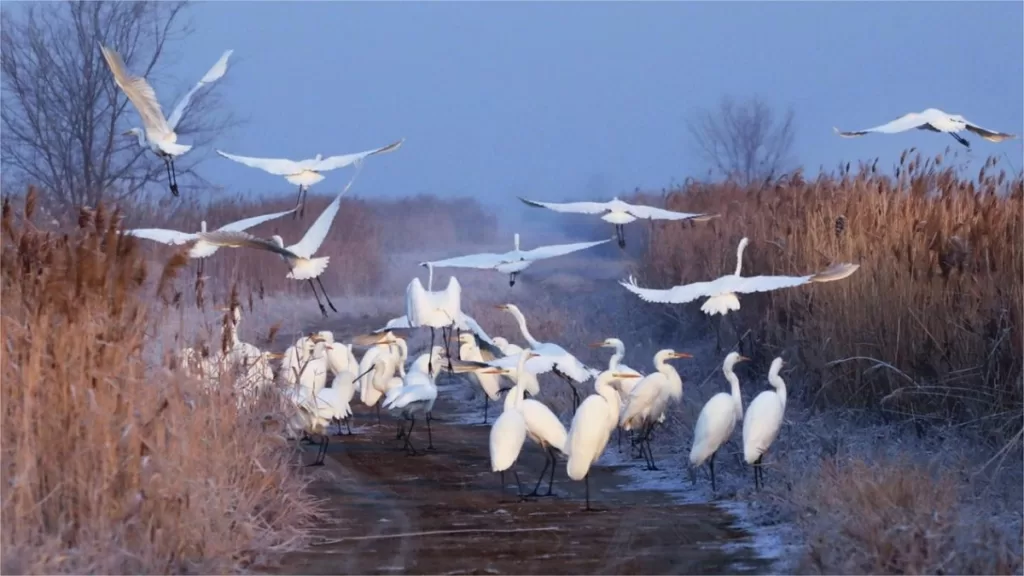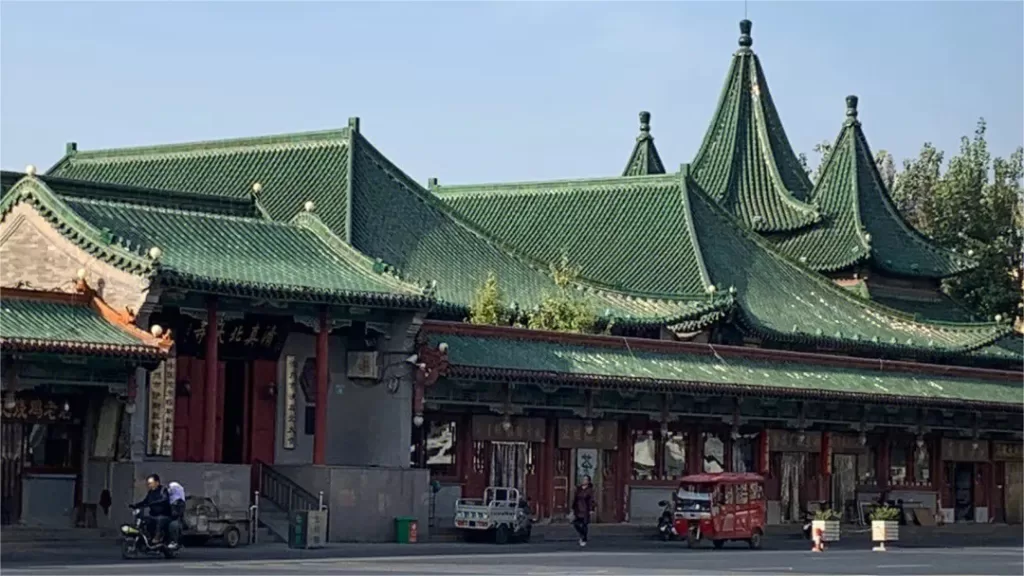The Iron Lion of Cangzhou (沧州铁狮子), forged during the later years of the Five Dynasties period, holds a history spanning over a thousand years. This remarkable iron lion, with a unique purpose and unparalleled stature, stands as a testament to ancient Chinese metallurgy and craftsmanship. Its creation, legend has it, was driven by the need to combat the perils of sea tsunamis and flooding, making it one of the oldest and largest surviving cast iron lions in China.
Standing tall at 5.78 meters, measuring 5.34 meters in length, and spanning 3.17 meters in width, the Iron Lion bears a colossal basin on its back, which is believed to hold the seated form of Bodhisattva Manjushri. The lion’s body faces southward, with its head turned to the southwest. Its left legs are placed forward, while the right ones trail behind, presenting a majestic forward-striding posture that radiates strength and lifelike grace.
Basic Information
| Estimated Length of Tour | About 1 hour |
| Ticket Price | 20 RMB |
| Opening Hours | 8.30 – 17.30; Last admission: 17.00 (16th March – 14th November) 8.30 – 17.00; Last admission: 16.30 (15th November – 15th March) |
| Telephone Number | 0086-0317-4743009 |
Location and Transportation
The Cangzhou Iron Lion is located in the village of Dongguan, Jiuzhou Town, Cang County, Cangzhou City, Hebei Province, China. Specifically, you can find it at No. 23 Dongguan Village. To reach the Cangzhou Iron Lion from the city center, you can take bus route 901. Here are the directions:
- Board bus route 901 in the city.
- Ride the bus to the “铁狮子景区” (Iron Lion Scenic Area) bus stop.
- Alight from the bus at this stop.
- Walk approximately 100 meters to the south, where you will find the Cangzhou Iron Lion.
History of the Iron Lion
In the year 953 CE, during the reign of Guangshun in the Later Zhou Dynasty, local residents united to finance the casting of this monumental iron lion to quell the menace of sea tsunamis and floods, thus earning its moniker, the “Roar of the Sea.”
However, the Iron Lion faced adversity in 1803 during the Qing Dynasty’s Jiaqing reign when a powerful gust of wind toppled it. It would take nearly a century for the lion to rise again. In 1893, during the Qing Guangxu period, the people of Cangzhou successfully reinstated the Iron Lion, albeit with the loss of its lower jaw.
In 1956, under the guidance of Soviet experts, an octagonal pavilion was erected above the Iron Lion to shield it from the corrosive effects of rainwater. This protective measure aimed to preserve the lion’s magnificence for generations to come. However, this structure was dismantled in 1975 due to issues related to water accumulation and accelerated rusting.
The year 1984 marked another pivotal moment in the Iron Lion’s history when it was relocated 8 meters northward onto a cement platform. This move aimed to prevent further sinking of its legs into the ground, and to safeguard the hollow legs, sulfur anchoring agents were temporarily injected but were not removed in a timely manner.
By 1994, the lion’s legs had developed cracks due to the expansion of the sulfur anchoring agents upon contact with rainwater. As a solution, 16 iron pipes with a diameter of 15 centimeters, painted in red ocher, were inserted to support the lion’s legs. Additionally, to reinforce the four legs of the lion, a mixture of slag, sand, and lime was injected, which had a lower expansion coefficient than sulfur.
The year 2000 witnessed the removal of the filling materials from the lion’s legs. In 2006, the Institute of Cultural Heritage Research in China initiated a three-dimensional spectral analysis of the Iron Lion of Cangzhou, further emphasizing its historical and cultural significance.
By 2009, owing to its age and extensive damage, the government of Cangzhou decided to undertake the formidable task of recasting the Iron Lion. This monumental endeavor aimed not only to preserve its legacy but also to celebrate its enduring cultural significance.
On March 28, 2011, the newly cast “Iron Lion of Cangzhou” was unveiled in Cangzhou’s Shizhou Park. This new iteration of the lion, weighing approximately 120 tons and measuring 1.32 times the volume of the original, stands as a testament to the city’s dedication to preserving its cultural heritage.





